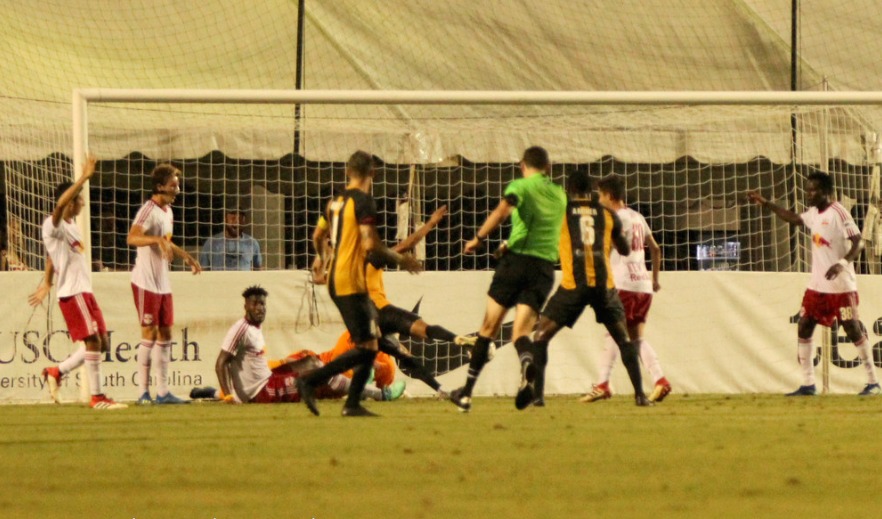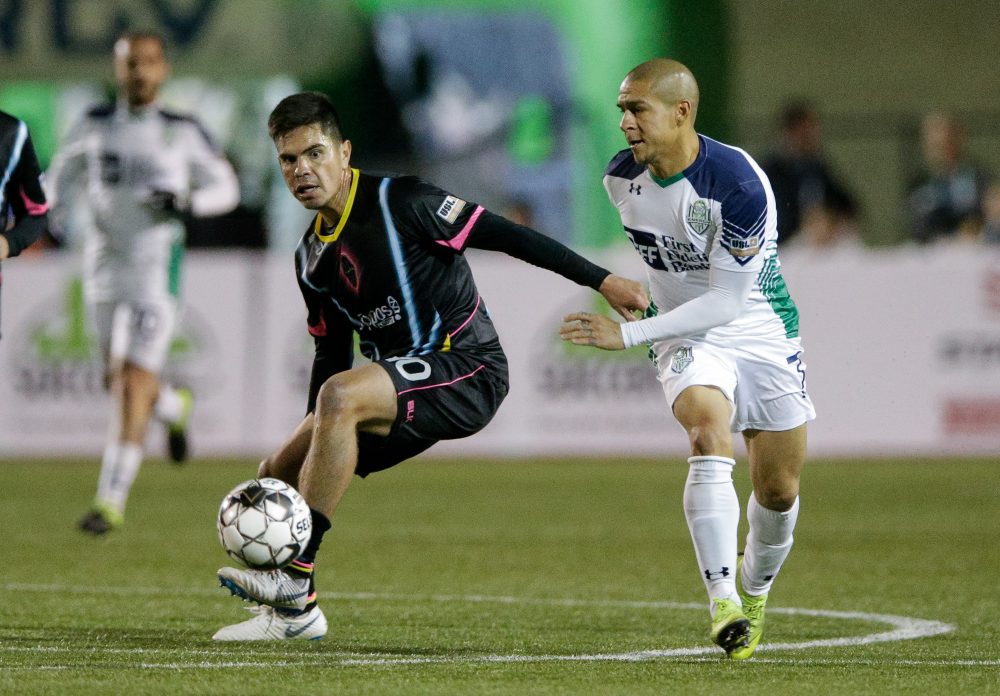Despite VAR, refs still guilty of affecting results
VAR is supposed to eliminate glaring refereeing mistakes, but we continue to see them in the USL.
“What would this game be like if we had VAR?” was a sentence said by the commentary team during the Chelsea-Newcastle United match this weekend and during an increasing number of games throughout the world since the advent of VAR technology in football. Some leagues have it, some are vehemently against it given examples of poor use in places where it is in practice, though it was featured in a starring role during the World Cup this summer. But, perhaps the biggest reason why many people believe VAR should be in place all around the world is a simple one: referees should not be able to decide the outcome of games.
On a much smaller stage than the World Cup or Premier League, two matches in USL this weekend had highly questionable decisions made by the referee that impacted both results. The Charleston Battery were 3-0 up at halftime against New York Red Bulls II before referee Matt Franz gave a red card and a handball in the penalty area in back to back decisions that effectively turned the game on its head as it ended in a 4-4 draw, while Tampa Bay Rowdies had a player sent off and a penalty given that gave FC Cincinnati a 2-1 win.
🏊♂️🤷♂️ pic.twitter.com/iCRseujDKM
— Tampa Bay Rowdies (@TampaBayRowdies) August 26, 2018
Replays on both the handball and penalty incidents didn’t seem to help either referee’s case for making the decisions and while other forces also led to each result, both sets of fans were left perplexed at the officiating at full time.
The biggest question being a fairly straightforward one. What did the referee see that the replay didn’t? In Franz case, the situation was only exasperated by the fact that he walked off the field and refused to give an explanation on why he called a foul to rule out what would have been the game winner by the Battery’s Angelo Kelly. Given these circumstances, you can only hypothesize that the referee was told later on that he got at least one of these calls wrong and wasn’t prepared to explain himself in front of such a hostile environment.
Looks more like Hassan collided with his own teammate if you ask me… pic.twitter.com/IwvBuK67Lw
— Séamus Grady (@SeamusGrady) August 26, 2018
That could be explained as neither here nor there. A referee is not required to give an explanation of a call after a match, though many have deemed his handling of the situation unprofessional in the days following. There is also bound to be some human error in a game that relies on officials to make calls, as with anything in life.
However, on the flip side, we’re getting to the business end of the season in USL with every scenario laid out for all to see, every game feeling like a do-or-die match in the context of playoffs in a tightly packed top half of the Eastern Conference. The Battery currently sit fourth in that Eastern Conference, one point behind third-place Pittsburgh. The extra two points would have helped them stave off Bob Lilley’s side for at least another week, but instead, they’re only four points in front of sixth placed Indy.
The Battery have only won three times away from home this year and they will feel they need as many home games in the playoffs as possible. Those two points could be the difference between securing a home game and having to go on the road in a playoff environment in a league where it’s always difficult to play away from your home fans.
It becomes even more frustrating when you think about the fact that conventional wisdom tells referees that if they’re unsure of a call, don’t make the call. Before VAR, this was the attempt to cut down the human error in the game and ensure that it runs smoothly. After VAR, as explained during the World Cup, the referees were instructed to not give the tight calls and let VAR decide, which ran with only slight hitches throughout the game’s biggest tournament.
As fans, the majority understand that there will be calls by referees that are incorrect. But when referees consistently make mistake after mistake, there comes a time when officials need to be held accountable, and the question needs to be asked whether the official directly influenced the outcome of a game. In the advent of VAR, this absolutely should not be the case.





